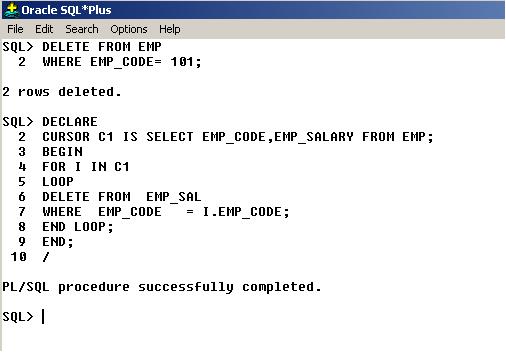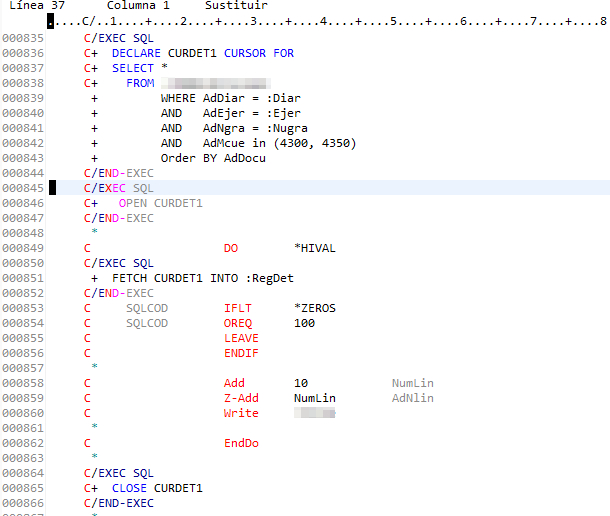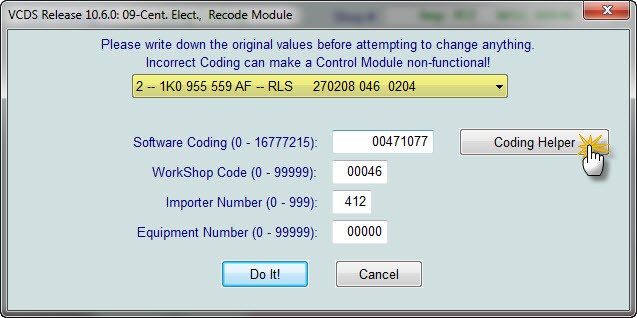
I would not use assertions in this manner in a production program.

Last, the purpose of the assertions is to let me know when an SQL statement fails. A program that only fetches one row doesn’t need a cursor, but a SELECT with the INTO clause.

Third, to simplify the program I omitted the loop that would process the entire table. I don’t think most IBM i shops use nulls in the database, so I will not unnecessarily complicate the example by adding code to handle null values. Second, if the Employees table can contain null data, then I would have to define a null indicator array. I know that the fields in the data structure will be adequate to receive the fetched data. Let me point out a few things about this program.įirst, notice that the employees table - the table that the program reads - provides the external definition of the EmployeeData data structure. '*ESCAPE': '*PGMBDY': 1: MsgKey: ErrorDS) * Abruptly end the program if an unexpected condition arises. First, static SQL: H dftactgrp(*no) actgrp(*new) option(*srcstmt: *nodebugio)Īssert (SQLState < cSQLEOF: 'Open failed, state=' + SQLState) Īssert (SQLState < cSQLEOF: 'Fetch failed, state=' + SQLState) Īssert (SQLState < cSQLEOF: 'Close failed, state=' + SQLState) Let us consider two versions of a program that uses SELECT * in a cursor. Here’s the DDL for a table of employee data.

Even though most programs use data from more than one table, programs that read only one table are not uncommon, and a program that reads only one table is a perfect candidate for the use of SELECT * in a cursor. To set the stage, let’s begin with a simple example - an RPG program that reads one table (physical file) and prints each row (record).

Specifically, is that a good idea or a bad idea? I have learned that the answer to that question is “It depends.” Using SELECT * in a cursor declaration may or may not get you into trouble. From time to time someone brings to my attention the use of SELECT * with SQL cursors in RPG programs.


 0 kommentar(er)
0 kommentar(er)
